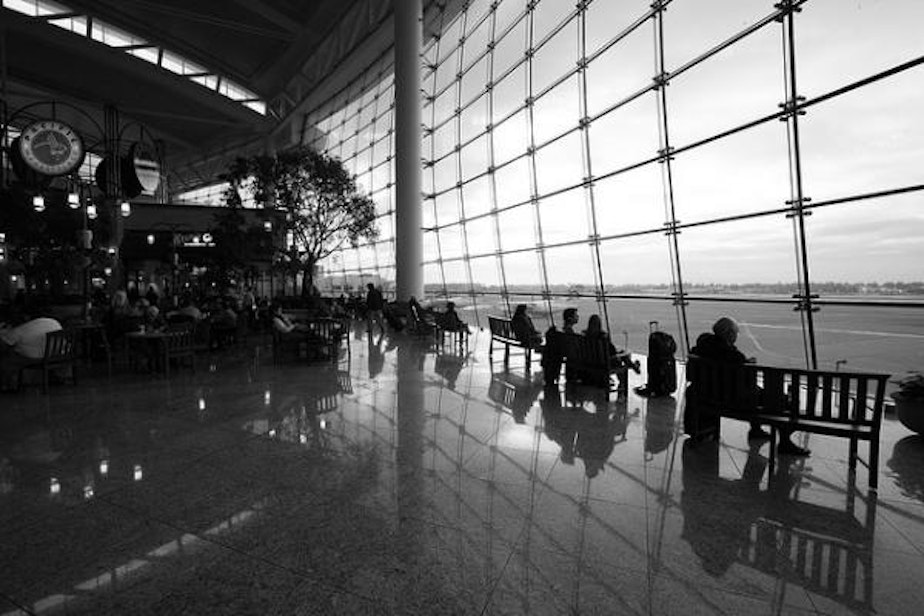As $15 Minimum Wage Passes In SeaTac, Labor Looks To Seattle

Three weeks after Election Day, supporters of a measure to increase the minimum hourly wage to $15 in SeaTac celebrated their victory. With the last batch of votes counted, King County declared the proposition had passed with more than 1 percent of the vote.
It remains unclear when employers will have to start paying workers $15 an hour. The opposition group, CommonSense SeaTac said it would pay for a recount (the county does not recount votes for propositions).
Meantime, Alaska and two restaurant groups have filed suit in county court, arguing that the proposition is unlawful. Until that’s resolved, the minimum hourly wage will remain frozen at $9.19 – Washington state’s minimum wage, the highest in the country.
Delays didn’t appear to dampen spirits at Sea-Tac Airport, where labor leaders celebrated and turned their focus to Seattle. Mayor-elect Ed Murray campaigned on a $15 an hour minimum wage, noted David Rolf, president of the Service Employees International Union HealthCare 775NW.
“I was part of the transition meeting the other day and the living wage conversation is very much alive in the incoming administration,” Rolf said. “SeaTac is only one city in a large region, and ultimately our economic prosperity in this region cannot depend on whether or not we give tax breaks to one aerospace company. It has to depend on whether we are building a middle class that can sustain a whole region.”
Gary Smith, a spokesman for the opposition group, said the initiative isn’t fair because some workers will lose their jobs.
“If it’s done through a legislative body, there will be hearings, there will be input, there will be studies,” Smith said. “There will be some measure of balance as to how it comes out rather than an initiative process where one partisan group says we have a great idea, we’re going to designate who gets stuck with this, and how much they get stuck with.”
But Heather Weiner, with the Yes for SeaTac campaign, said workers are tired of waiting for “corporate CEOs to give up their enormous bonuses and their stockholder options and pay their employees well.”
She, too, alluded to SeaTac being a beta test for other cities.
“If we can do it in a small place like SeaTac, we can probably do it other places around the country,” Weiner said.
Minimum Wage Roots
SeaTac’s living wage proposition has its roots in the 1990s in Baltimore, where church groups and labor unions noticed that some people at shelters actually had full-time jobs.
Within a few years, the movement hit the West Coast. Living wage laws kicked in at LAX in Los Angeles and Bay Area airports, including SFO. Ken Jacobs, chair of the University of California, Berkeley Center for Labor Research and Education, said the laws had dramatic effects. Before the minimum wage raise, turnover among lower-paid jobs at San Francisco airport was 50 percent a year.
"When we came back six months after the law had gone into effect, we found that the turnover rate had fallen to 20 percent," Jacobs said. "And there were dramatic impacts on worker performance and productivity reported by both sides."
Unions are the proposition's biggest backers, with nearly a million dollars in the campaign’s war chest. Those opposed include Alaska Airlines. Half the flights leaving Sea-Tac are Alaska’s. And Alaska’s decision to outsource services like baggage handling has been a sore spot for the unions.
"This is uniquely pointed at us and here at little old SeaTac, Wash., and it’s not the kind of problem that can be solved on a one-off basis like this," said Keith Loveless, executive vice president of Alaska Airlines. "It’s just a crazy competitive business and every penny counts.”
Produced for the Web by Isolde Raftery.
